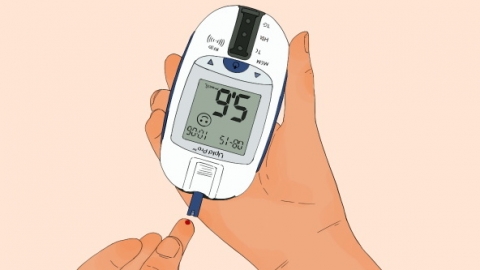Does blood glucose fluctuate during pancreatitis?
Generally, whether blood glucose levels fluctuate during pancreatitis depends on the type, severity, and stage of the disease. The specifics are as follows:

If the pancreatitis is of the severe acute type, significant damage to pancreatic tissue can impair the function of insulin-secreting beta cells in the islets, leading to reduced insulin secretion. This impairs effective blood glucose regulation, making hyperglycemia more likely. Some patients may also present with positive urine glucose. Such blood glucose fluctuations become more pronounced as pancreatic inflammation worsens, necessitating close monitoring of blood glucose changes.
If the pancreatitis is mild or in the recovery phase, with only minor pancreatic tissue damage and preserved beta cell function, most patients can maintain normal blood glucose levels. Only a small number of patients might experience brief, mild glucose fluctuations due to slight inflammatory stimulation. As inflammation gradually subsides, blood glucose levels typically return to normal.
Pancreatitis patients should regularly monitor their blood glucose, especially those with severe acute pancreatitis or those who previously experienced glucose fluctuations during recovery. They should keep records of glucose changes. In daily life, sugar intake should be controlled—avoiding high-sugar foods—and meals should be consumed regularly. If persistent abnormal glucose levels are detected, medical attention should be sought promptly. Under a doctor's guidance, dietary adjustments or other interventions should be implemented to prevent adverse effects of glucose fluctuations on recovery.









